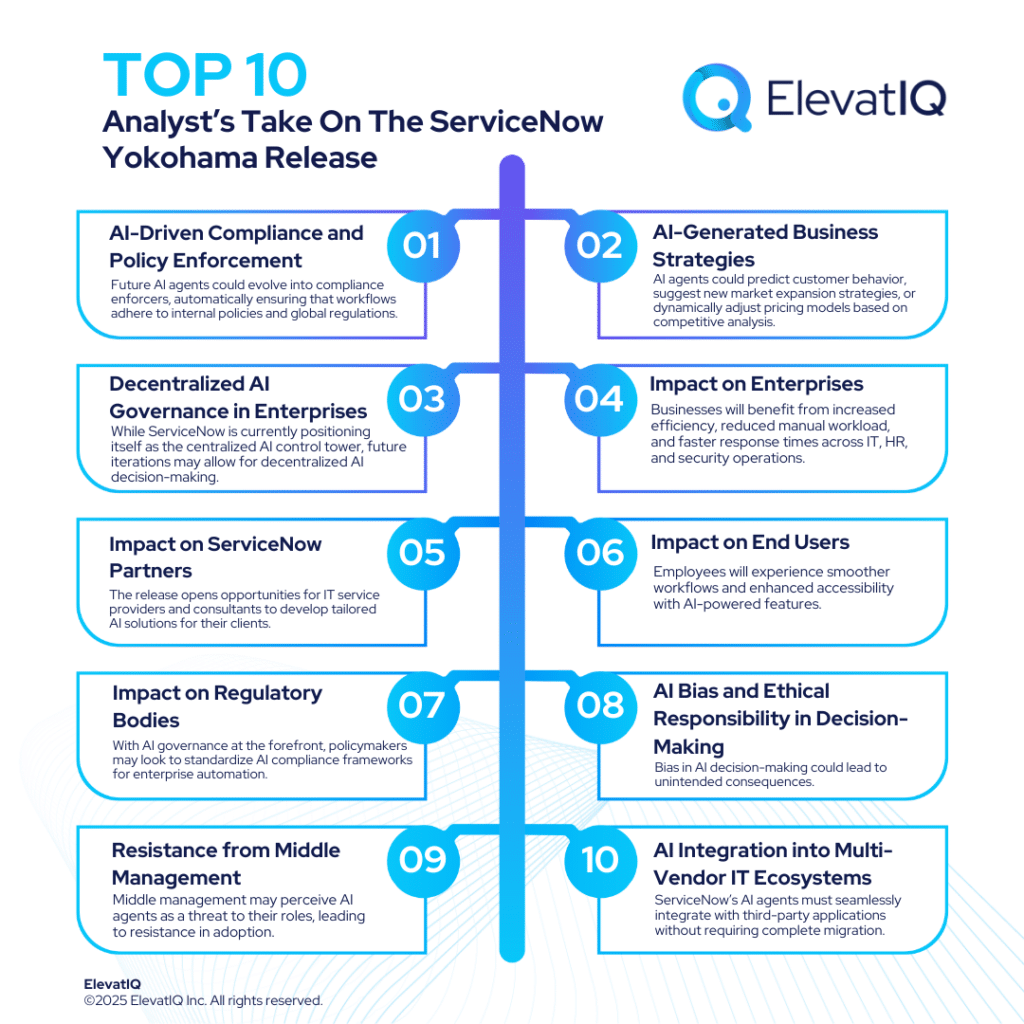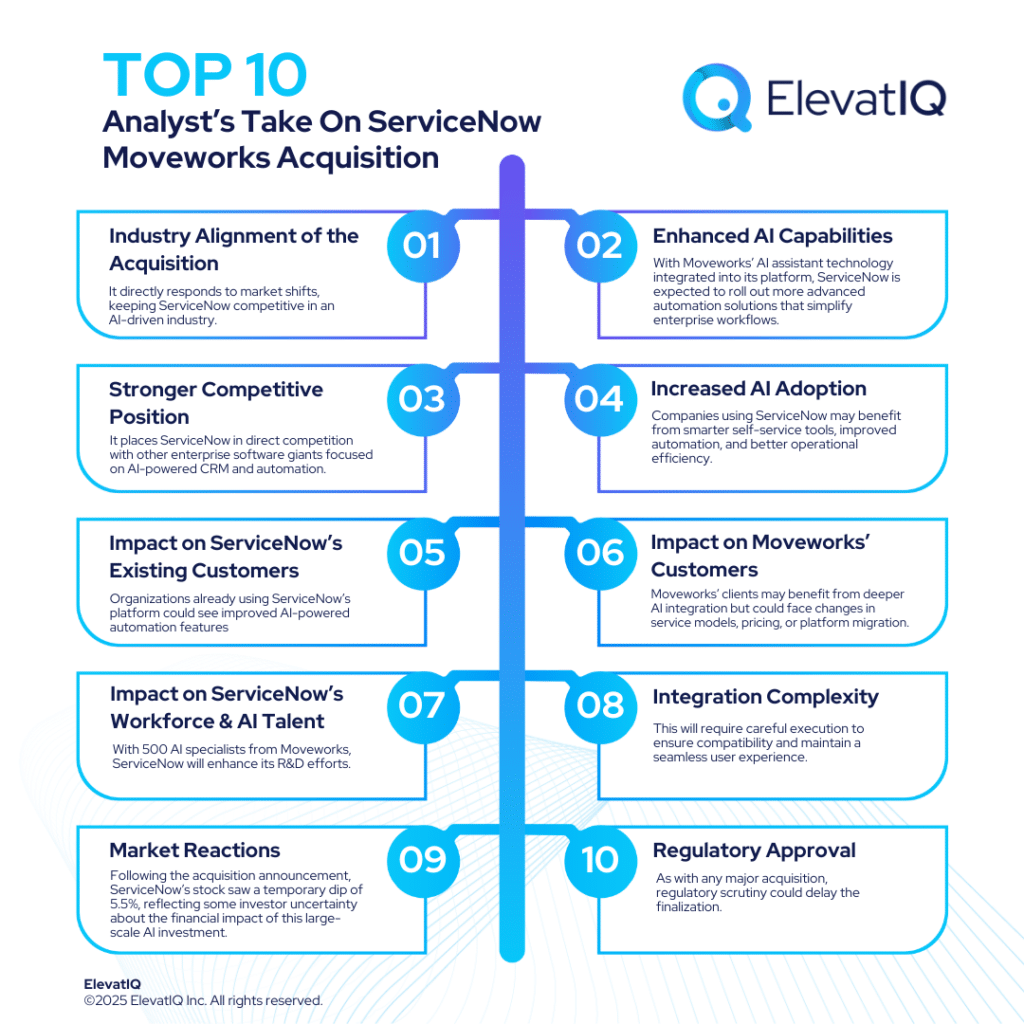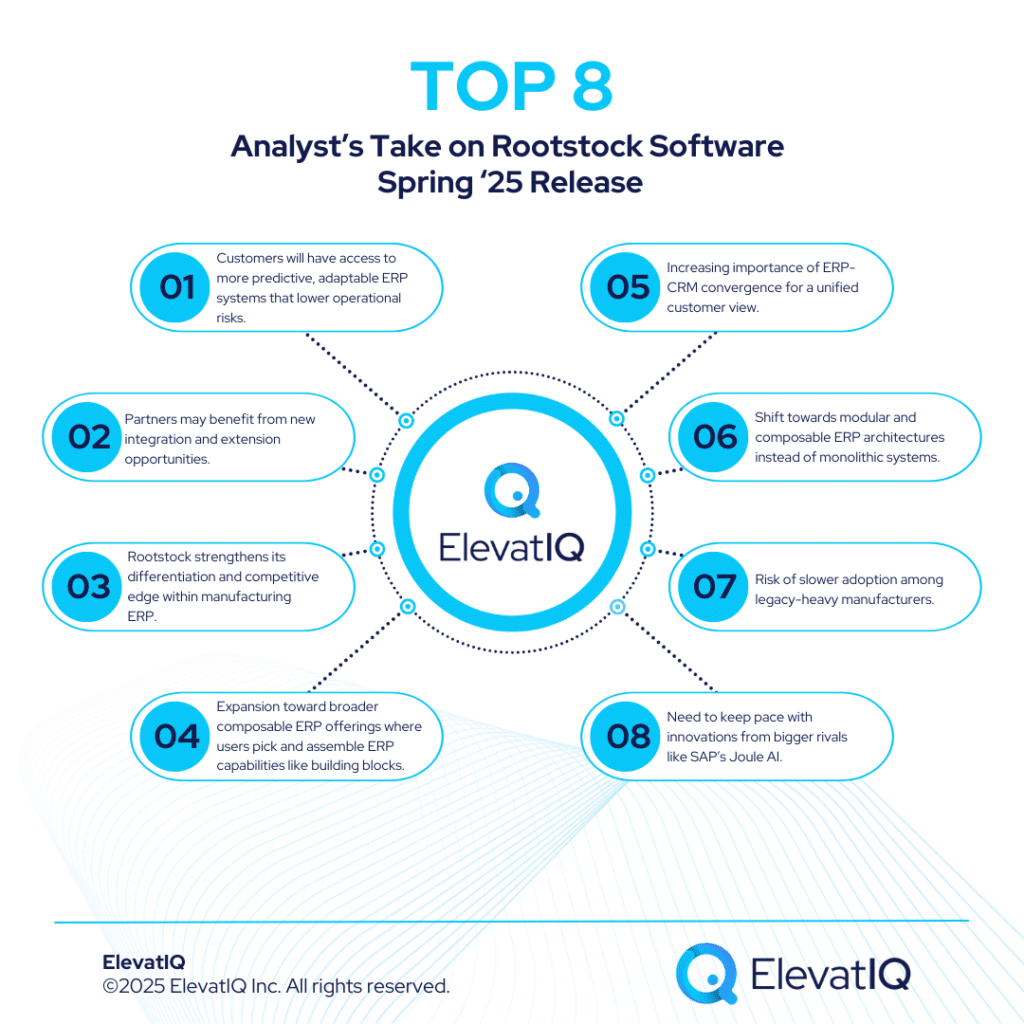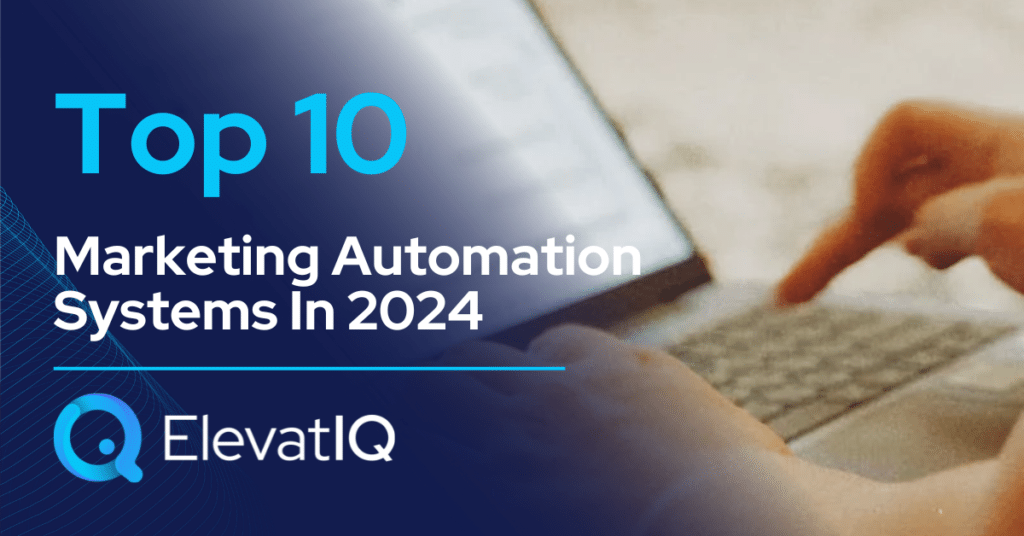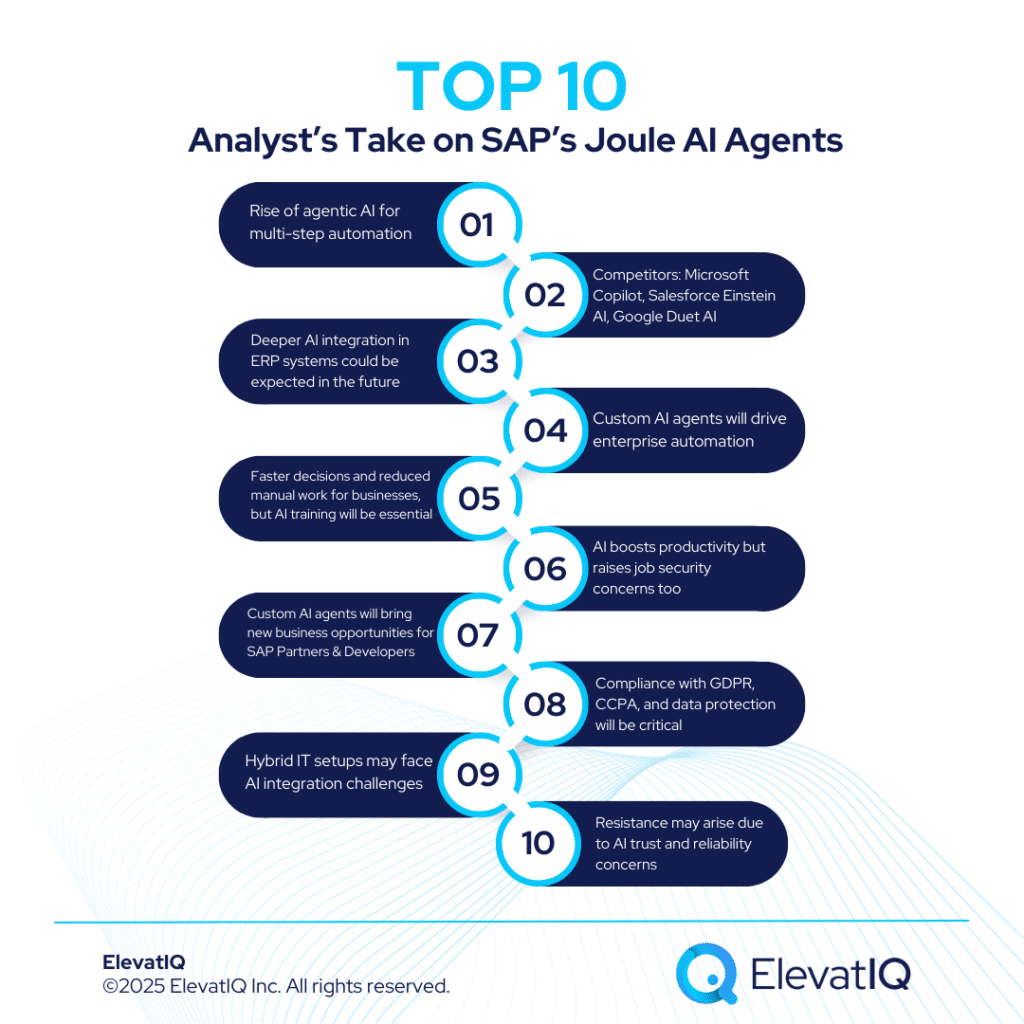Last Updated on April 4, 2025 by Shrestha Dash
Key Features of the ServiceNow Yokohama Release
AI Agent Orchestrator: A Unified Approach to AI Automation
One of the standout features of the ServiceNow Yokohama Release is the AI Agent Orchestrator, which ensures that AI-driven processes do not work in isolation. This orchestrator enables multiple AI agents to collaborate, reducing workflow silos and allowing automation to function holistically across departments. By centralizing control over AI agents, ServiceNow enhances operational efficiency while maintaining transparency and governance over automated tasks..
AI Agent Studio: Customization and Governance
To help businesses adapt AI capabilities to their specific needs, AI Agent Studio provides a platform for creating, managing, and integrating AI agents. Organizations can develop custom AI agents tailored to their workflows, ensuring alignment with existing processes. Additionally, AI Agent Studio incorporates governance mechanisms to ensure compliance and security in enterprise automation.

Preconfigured AI Agents for Specific Functions
The ServiceNow Yokohama Release introduces pre-built AI agents designed to address key enterprise functions:
- SecOps Expert AI Agents: Automates security operations, enabling teams to respond to threats more efficiently.
- Autonomous Change Management AI Agents: Generates and implements change management plans with minimal risk.
- Proactive Network Test & Repair AI Agents: Detects and resolves network issues before they impact business operations.
By offering plug-and-play AI solutions, ServiceNow ensures businesses can adopt AI automation with minimal configuration.
ServiceNow as the AI Control Tower
With AI playing a growing role in enterprise workflows, ServiceNow positions itself as the central hub for AI governance and orchestration. Amit Zavery, President, Chief Product Officer, and COO of ServiceNow, emphasized, “We are the control tower for how AI gets used, managed, governed, and delivered inside an enterprise.” This highlights ServiceNow’s strategic approach to creating an enterprise-wide AI ecosystem rather than just individual automation tools.

Common Service Data Model (CSDM) for Better Data Integration
The Common Service Data Model (CSDM) has been upgraded in the ServiceNow Yokohama Release to ensure better data standardization across different business systems. This facilitates seamless data flow between AI agents, reducing integration complexities and improving decision-making capabilities.
Enhanced Accessibility and User Experience
The ServiceNow Yokohama Release also focuses on accessibility improvements, introducing:
- Voice input capabilities for hands-free AI interaction.
- AI-generated knowledge articles based on incident reports.
- Customizable reading experiences through the ServiceNow Text Suggest feature.
These updates make the platform more user-friendly and inclusive, ensuring accessibility for a diverse workforce.
Pricing and Availability Model
To encourage AI adoption, ServiceNow is integrating AI agents into its Pro Plus and Enterprise Plus licensing models. Existing customers of Now Assist, along with new buyers, will receive access to these AI agents within their licensing plans. For organizations requiring additional AI processing power, extra usage credits can be purchased separately.
Analyst’s Take on ServiceNow Yokohama Release
Industry Trends Observed in the ServiceNow Yokohama Release
The ServiceNow Yokohama Release reflects broader industry trends, particularly the shift toward AI-driven automation and AI agent governance. Enterprises increasingly demand AI solutions that are not just reactive but also proactive and autonomous, reducing human intervention in routine tasks. Moreover, AI governance has become a critical focus, as businesses seek centralized platforms to manage AI agents and ensure compliance with data privacy regulations.
Impact on Stakeholders
- Enterprises: Businesses will benefit from increased efficiency, reduced manual workload, and faster response times across IT, HR, and security operations.
- ServiceNow Partners: The release opens opportunities for IT service providers and consultants to develop tailored AI solutions for their clients.
- End-Users: Employees will experience smoother workflows and enhanced accessibility with AI-powered features.
- Regulatory Bodies: With AI governance at the forefront, policymakers may look to standardize AI compliance frameworks for enterprise automation.
Future Predictions
- AI-Driven Compliance and Policy Enforcement – Enterprises are under growing scrutiny regarding data privacy and compliance with AI regulations. Future AI agents could evolve into compliance enforcers, automatically ensuring that workflows adhere to internal policies and global regulations.
- AI-Generated Business Strategies – The ServiceNow Yokohama Release lays the foundation for AI agents that go beyond operational efficiency to impact high-level business strategy. AI agents could predict customer behavior, suggest new market expansion strategies, or dynamically adjust pricing models based on competitive analysis.
- Decentralized AI Governance in Enterprises – While ServiceNow is currently positioning itself as the centralized AI control tower, future iterations may allow for decentralized AI decision-making. Individual departments within an enterprise may have localized AI agents trained for specific needs, communicating in real-time with a broader AI governance system. This would reduce dependency on a single AI framework and allow greater flexibility across global operations.
Possible Challenges & Hurdles
- AI Bias and Ethical Responsibility in Decision-Making – As AI agents become more autonomous, bias in AI decision-making could lead to unintended consequences. Example: AI agents handling job promotions or resource allocation might inadvertently favor certain employee groups based on biased historical data.
- Resistance from Middle Management – While AI automation benefits enterprises, middle management may perceive AI agents as a threat to their roles, leading to resistance in adoption. ServiceNow must position AI as a decision-enhancer rather than a replacement, ensuring buy-in from management-level employees.
- AI Integration into Multi-Vendor IT Ecosystems – Many enterprises use a mix of IT tools from different vendors (e.g., Microsoft, SAP, Oracle). ServiceNow’s AI agents must seamlessly integrate with third-party applications without requiring complete migration. The challenge will be ensuring interoperability while maintaining ServiceNow’s position as the AI control tower.



